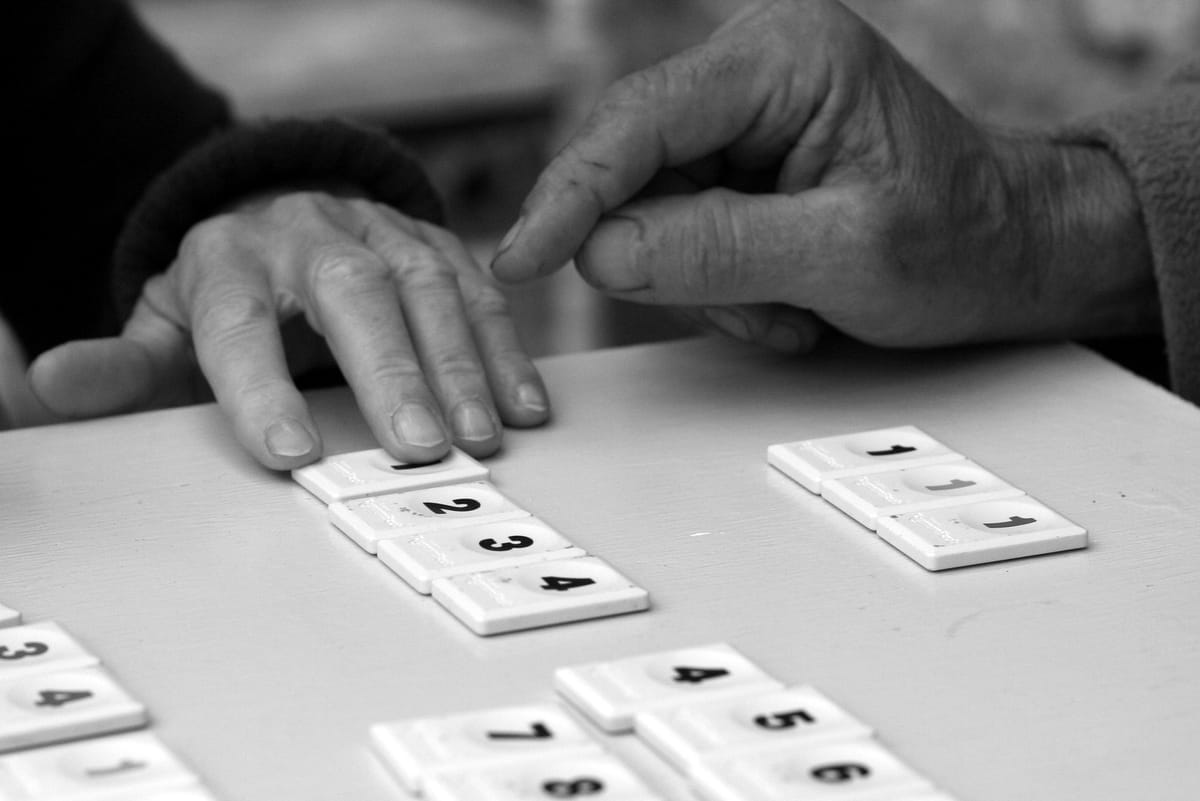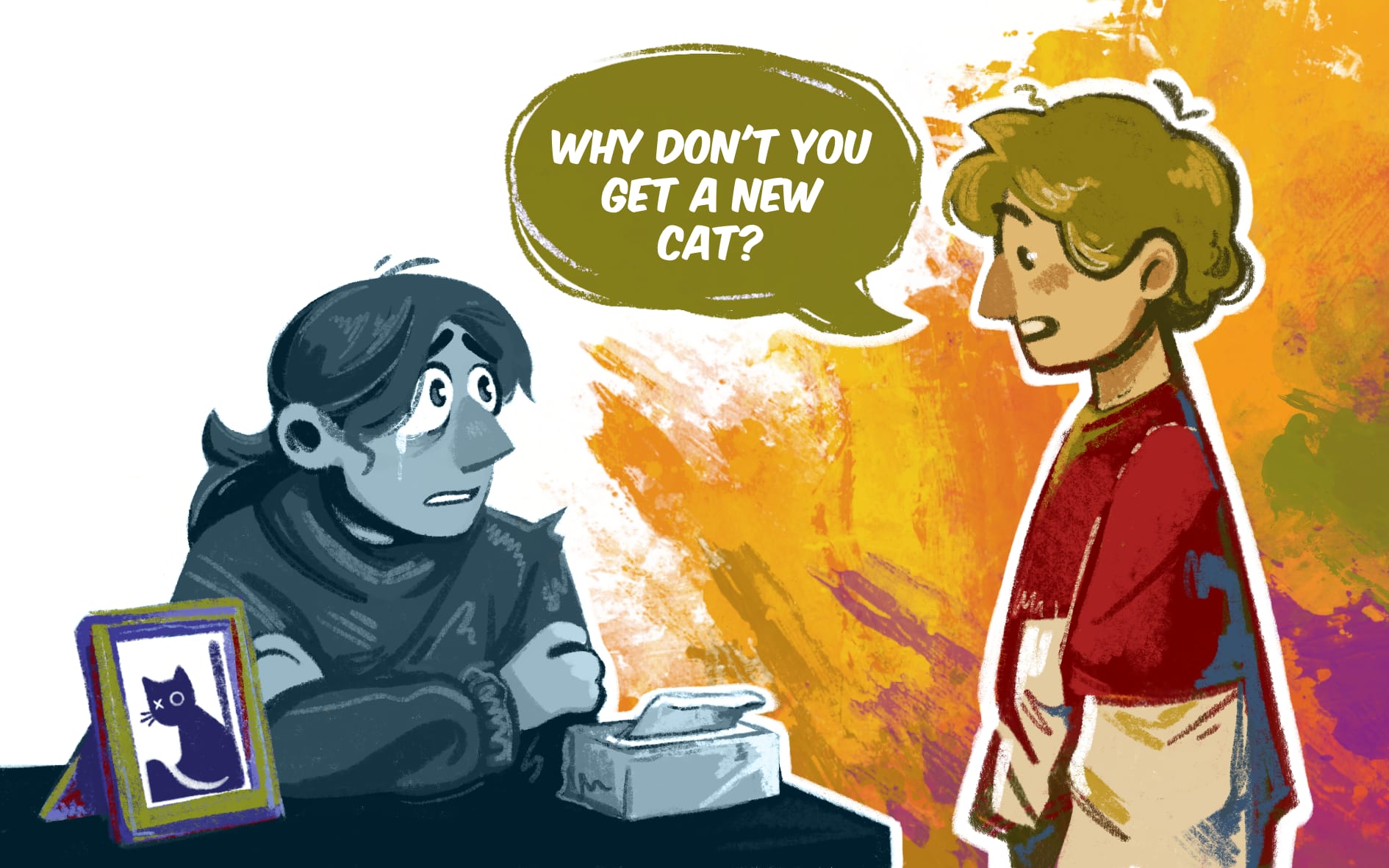
Matching tiles: how Rummikub links my childhood to Alzheimer’s disease
Second-year Psychology students participating in the University Honours College follow a mini-course on Blogging Science (within the Thematic Meetings course), in which they learn to communicate science to the general public, by means of informing, giving an opinion, and relating issues in science to issues in society. This year a selection of these written blog posts is published on Mindwise. Today’s post is by Jildou Stapert.
Playing Rummikub
When I think of the word Rummikub, I think of my grandparents. I remember us having game competitions, every Friday afternoon. Hours on end we would play Skipbo and Rummikub, both games based on strategic decisions and a bit of luck. My grandfather was a cheerful and intelligent man, who would usually win these games, even though I am sure he let us win from time to time. But as I grew older and got better at Rummikub, my grandfather’s skills faded and it took him more and more time to find the right pieces… With the knowledge I have these days I would have noticed sooner, but at that time I didn’t. During our holiday abroad my father received a call. The police had collected my grandfather, things got out of hand and he had completely lost his way. He was violent, he was confused and the description I got did not match the image I had of my grandfather at all. The doctor’s diagnosis: dementia.
A few years later I volunteered in a house for patients with Alzheimer’s disease. Most residents were elderly, but the house also had two young, energetic men renting a room. Both of them had not even passed their fiftieth birthday. I remember working there as a valuable experience, bittersweet and precious at the same time. But there is one moment in particular that I remember better than all the others: it was in the afternoon, around two. I was sitting around the table with two of the male residents, a pile of Rummikub tiles before us. On a scrap of paper I wrote the numbers 1 to 13. For half an hour the men were trying to match the numbers on the tiles with the numbers on their papers, I will never forget the look of pride on their faces when they matched the right numbers and the even more delighted look when all tiles had the same colour. It was a form of therapy for them, giving them the feeling that they had not lost all of their memory, all of their intelligence, all of their wisdom.
Some way to cure Alzheimer’s disease?
In my mind Rummikub will always remain linked to dementia. It was there and then that I decided that I wanted to know more about Alzheimer’s disease and cognitive therapy. There had to be some way to cure this horrible disease and maybe I could contribute to that. Over the course of the years I established an impressive amount of factual knowledge about dementia. Did you know that learning a second language delays the onset of dementia? A study by Bialystok, Craik and Freedman (2007) [1] suggests that Alzheimer’s disease is on average diagnosed four years later in bilinguals compared to monolinguals. This works best for bilinguals switching between languages every day, but even the languages we learn in high school might be beneficial for the how our brain works.
Another claim is that music enhances the brains functioning, possibly delaying Alzheimer’s disease as well. Music therapy is the only known therapy used to ‘treat’ dementia. In a case report, Matthews (2015) [2] talks about a man named Henry. Henry is in a severe state of his disease, not speaking to others, incapable of recognizing the people around him. However, after listening to his favourite music for a while he is able to respond to the people around him, even having short conversations with his carers. Music therapy could have some beneficial effect, since it appears to help form new neural connections in areas music processing takes place. It delays neurodegeneration in these areas and it also reactivates the sleeping areas which are still intact in other brain areas. Even though the success of music therapy is based mostly on case studies, which means their claims cannot be proven, researchers are still fairly interested in the topic at hand. During a quantitative research into music therapy, Schall, Haberstroh and Pantel (2015) [3] did not find an improvement in the cognitive functioning of patients with Alzheimer’s disease, however, they also found no decline. Given the fact there was a six months period between the two measurements this might be a promising start, but more research has to be conducted before we can actually state music therapy is an effective means to help people with dementia.
My grandfather died on the 31st of October 2015. I had not visited him for half a year, it was in the middle of the exam week, but as faith would have it I was there that evening when he died. Instead of preparing for my exams, I spent the bigger part of the week preparing a funeral and thinking about the course of his disease. I spoke at his funeral, not about the man who had slowly lost his identity to a horrible disease, but about the loving grandfather I used to know.
I still believe there is a better way to at least improve the quality of life of most patients with Alzheimer’s disease, and maybe, someday, there is something I can contribute.
Relevant links and publications
NOTE: Image by Peter Forret, licenced under CC BY 2.0



